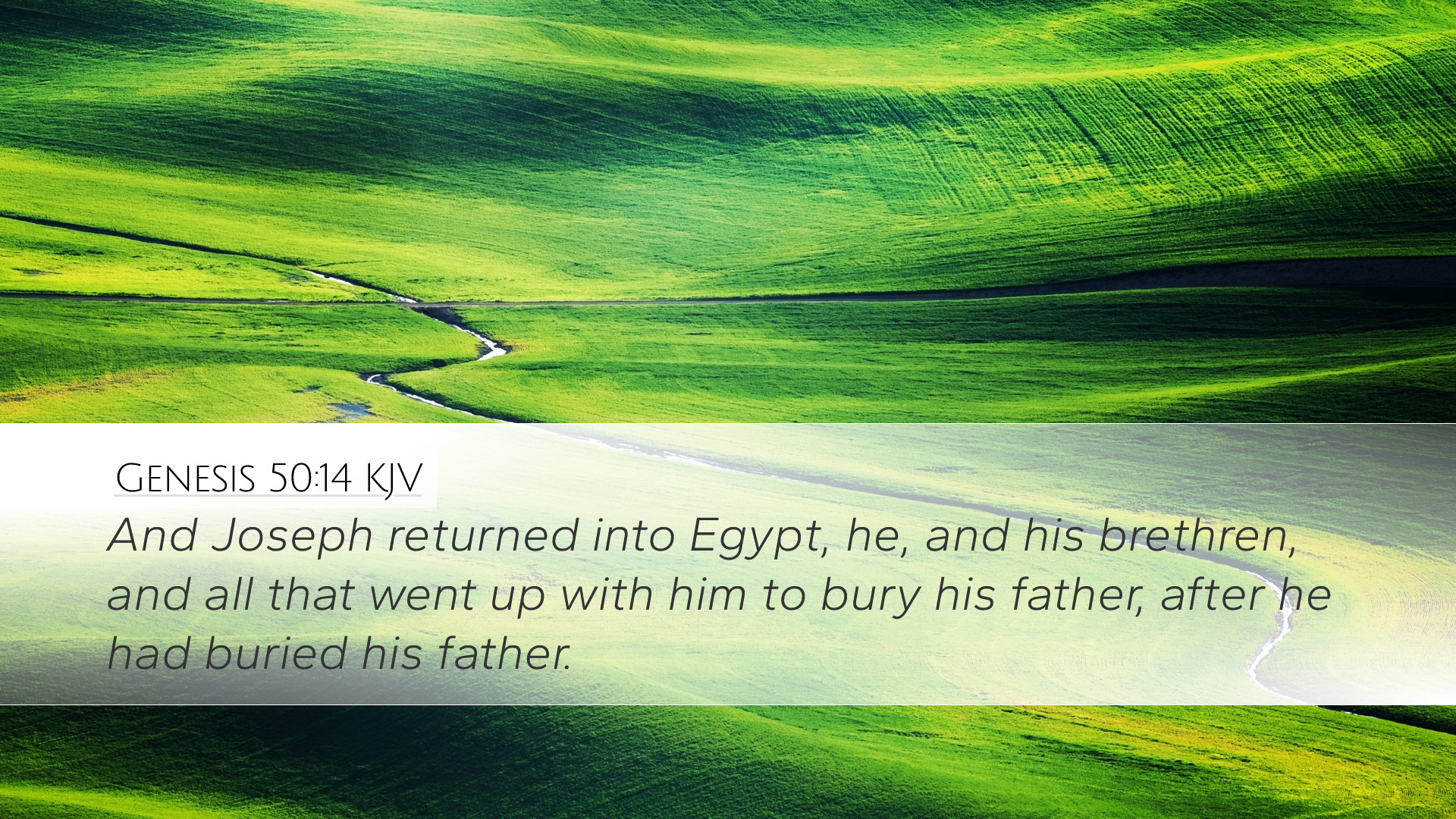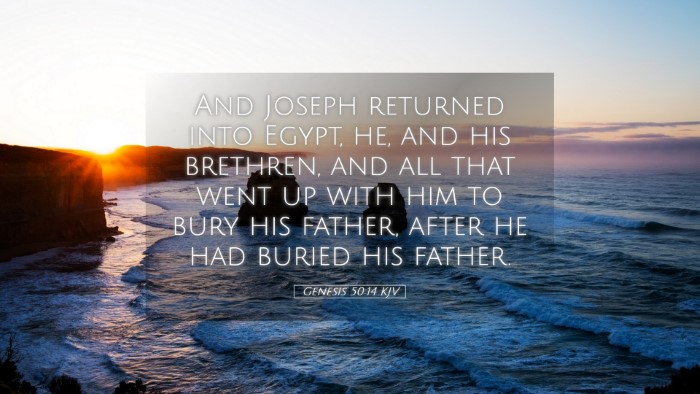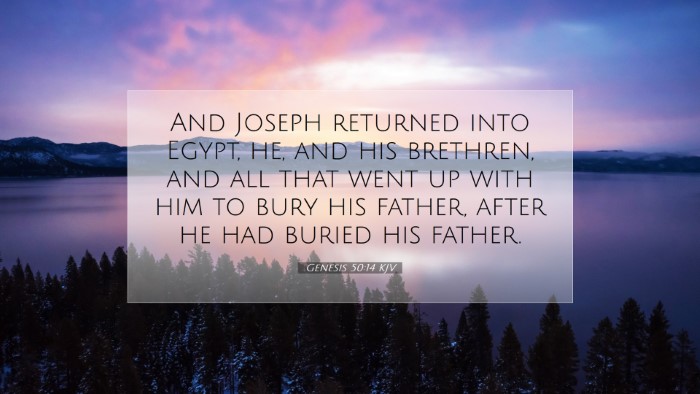Commentary on Genesis 50:14
Genesis 50:14: "And after he had buried his father, he returned to Egypt, he and his brothers and all who went up with him to bury his father."
Introduction
This verse encompasses a significant moment in the biblical narrative following the death of Jacob (Israel). It marks the culmination of a long journey both literally and figuratively, representing themes of family, reconciliation, and the fulfillment of God’s promises.
Contextual Background
To appreciate the depth of Genesis 50:14, one must consider the preceding chapters where Jacob, having blessed his sons and foreseen their future, passes away. His death brings about a series of events that highlight the complex relationships within the family of Jacob, particularly between Joseph and his brothers.
Historical Context
In the broader narrative of Genesis, the burial of Jacob in Canaan is significant. It underscores the importance of heritage and the promises made to Abraham, Isaac, and Jacob regarding the land of Canaan. It also serves as a bridge leading to the Israelites' eventual departure from Egypt and their journey toward the Promised Land.
Insights from Public Domain Commentaries
Matthew Henry's Commentary
Matthew Henry highlights the veracity of Joseph's character through this episode. He emphasizes that Joseph displayed profound reverence for his father in his death and burial, demonstrating respect even after a life filled with betrayal by his brothers. Henry notes that Joseph’s transition back to Egypt is filled with deeper meaning, symbolizing not just a physical journey but the ongoing journey of God's plan unfolding through Joseph’s life.
Albert Barnes' Notes on the Bible
Albert Barnes points out that upon burying his father, Joseph returned to Egypt with a sense of duty and a complex emotional burden. Barnes emphasizes that this return signifies Joseph's acceptance of his position in Egypt while still holding onto the promises made to his family. He further elaborates that the act of burying Jacob was not merely a cultural obligation but a manifestation of the hopes of the Israelites to return to Canaan, their rightful inheritance.
Adam Clarke's Commentary
Adam Clarke provides an insightful analysis of the logistics involved in the burial process. He notes the considerable entourage that accompanied Joseph, comprising not only his brothers but travelers from both Egypt and Canaan who mourned with them. Clarke sees this as a testament to Jacob's character and influence, illustrating how wide the familial and social networks extend. He also draws attention to the emotional weight of the journey and how it symbolizes a deep lamentation for lost time and forgiveness among brothers.
Theological Implications
This verse brings to the forefront the themes of mourning, reconciliation, and God’s divine orchestration in the lives of His people.
- Mourning and Grief: The grief experienced in this moment is profound, as it embodies the end of an era for the family. This collective mourning carries with it a healing process for the brothers, especially considering their troubled past with Joseph.
- Reconciliation: The return journey symbolizes more than the physical return; it also reflects the healing of familial relationships. Joseph’s treatment of his brothers has already pointed towards reconciliation, which finds its expression in this collective moment of mourning.
- Divine Sovereignty: Joseph's leadership in this situation reaffirms God’s sovereignty over personal and communal histories. The passage illustrates how God can work through our lives' trials and triumphs to fulfill His greater narrative.
Lessons for Today’s Believers
The themes present in Genesis 50:14 resonate deeply with contemporary believers. They remind us of the importance of honoring our familial connections while recognizing the greater narrative of God in our lives.
- The Importance of Family: The need for familial support, especially during times of loss, speaks to the human experience. Like Joseph, we are called to honor our loved ones and navigate our relationships with grace.
- Emotional Healing: Just as the journey back to Egypt represents healing for Joseph and his brothers, modern believers are encouraged to seek healing through reconciliation and forgiveness within their families.
- Trust in God’s Plan: Joseph’s journey is a testament to patience and trust. Believers are reminded that God’s plans often unfold in ways that are beyond our understanding, and every step taken may serve a greater purpose.
Conclusion
Genesis 50:14 serves as a rich text for reflection on family dynamics, the weight of grief, the process of healing, and the overarching hand of God in orchestrating the lives of His people. Engaging with this verse through the lens of commentators like Henry, Barnes, and Clarke allows us to appreciate the intricate layers of meaning that resonate through time, calling us to live in reconciliation and hope.


